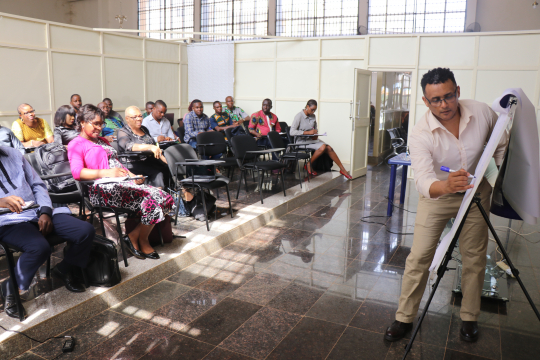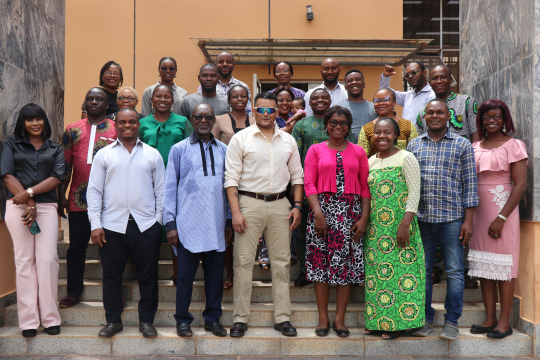EfD Nigeria recently concluded a three-day workshop for graduate students and early career researchers in Randomized Control Trial (RCT) research design. The workshop, held from April 29 to May 1, 2024, aimed to equip participants with essential skills in conducting rigorous and unbiased impact evaluations studies.
Facilitated by Yonas Alem, an EfD research from the Global Hub at the University of Gothenburg the workshop attracted over 25 enthusiastic participants who were eager to delve into the intricacies of RCT studies.
The primary objective of RTC is to provide a robust and unbiased estimation of what impact an intervention has caused. Through RCTs, researchers can determine specific changes in participants' lives caused by a program or intervention, thereby helping policymakers make evidence-based policy decisions.
Training was engaging
During the intensive three-day training, participants engaged in
comprehensive discussions covering various aspects of RCT methodology.
Participants discussed why impact evaluations are important, how to determine what causes what, how to choose the right number of representative participants in a research, how to assign treatments, and how to analyze the results
The workshop received positive feedback from participants who found the experience enriching and invaluable for their research endeavors.
Participants are eager to apply RCT in future studies
Chinasa Onyenekwe, a research fellow at EfD Nigeria expressed enthusiasm about applying RCT methodology in her future research work.
“I am already developing a concept note on research that aligns with RCT,” Chinasa Onyenekwe said.
Onah Ogochukwu, described the workshop as impactful, stating that it gave her insights into impact evaluation. She expressed her intention to collaborate with fellow participants from her department to apply the knowledge gained from the training effectively.
Christian Chukwuebuka Bassey, said that the hands-on nature of the training made the workshop stand out. He mentioned that the workshop has helped him overcome the challenge of sampling when using the RCTs research method.
Inya Agha Egwu

